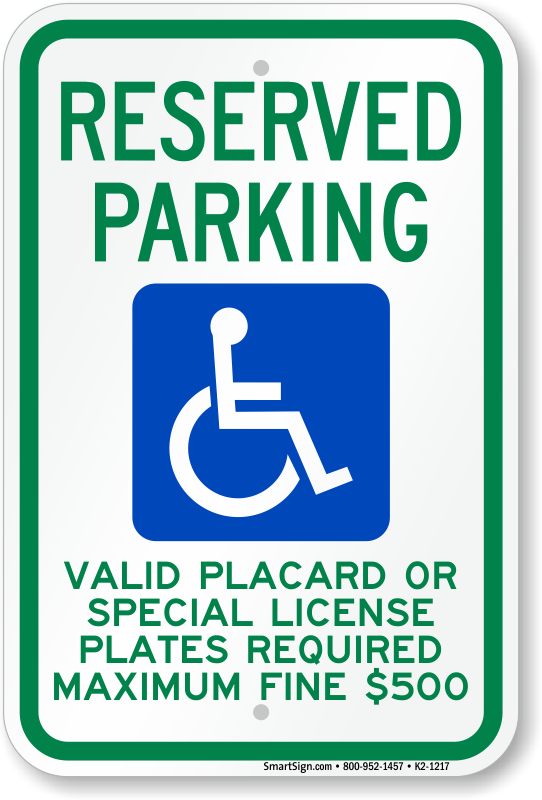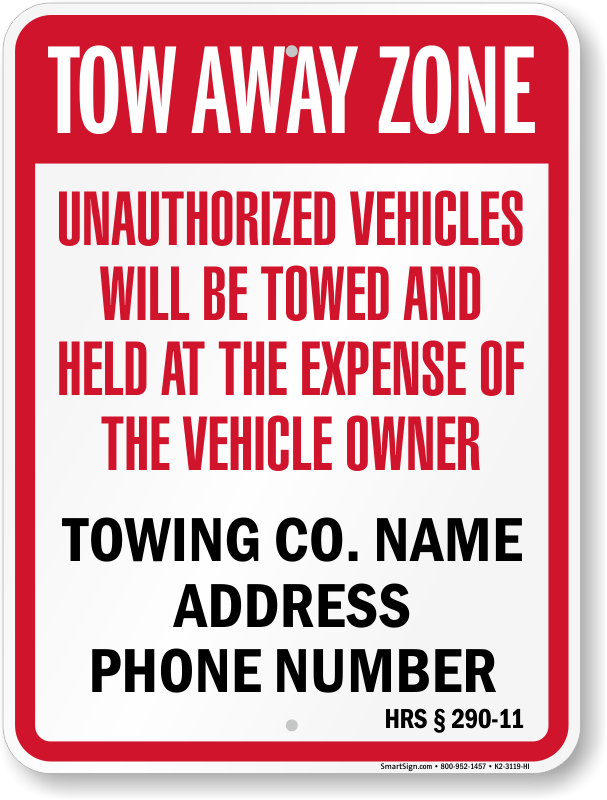Parking signs in Hawaii

A fully ADA-compliant Hawaii parking sign, current as of 5/6.
Accessible parking spaces
- To mark accessible parking spaces, you must designate each accessible space with a sign that is green on white, saying “reserved parking for persons with disabilities”, with the International Symbol of Access on it in blue and white.
- The language, “Valid placard or special license plate required”, and “Maximum fine $500”.
- The sign should be minimum 12” x 18”.
- If the space is van-accessible, “van accessible” should also be included on the sign.
See our examples of fully compliant Hawaii disabled parking signs.
Towing laws

Custom Hawaii tow away sign with up to date statute as of 5/6.
I’m a property owner. What signage do I have to post to warn drivers that their cars might be towed?
- To tow, you must have a sign at every vehicle entrance to your facility.
- This sign must have:
- Language saying, “Unauthorized vehicles will be towed and held at the expense of the vehicle owner”.
- The towing company’s name, address and phone number.
- Limitations on who can park there. (For example, “Parking for customers of Magnum Security only.”)
My car was towed. What do I do?
- You should call local law enforcement. Laws vary between cities, so local police will be able to assist you with specific guidance.
See our selection of compliant Hawaii towing signs.
Fire lane signage
- The standard fire code requires you to post a 12” x 18” sign with 3” letters above fire lanes. In general, it’s the local authorities who set fire lane distances in the building code. You should be safe by posting signs every 25 feet, but make sure you check local fire and building codes, because they vary from city to city.
See our selection of compliant Hawaii fire lane signs.
—
SmartSign is not in the business of providing legal advice. Make sure to check with a lawyer or your local authorities if you have any questions. Sometimes, local laws are different from what the state requires.











